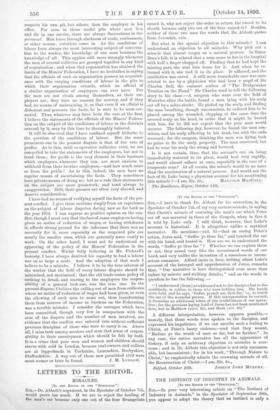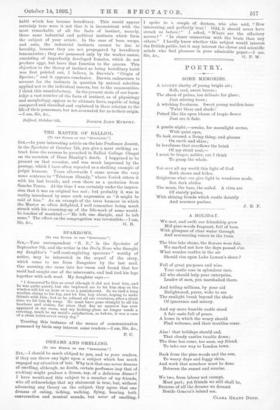THE INSTINCT OF INDUSTRY IN ANIMALS.
[To THE EDITOR OF THE " SPECTATOR."] Sin,—In your very interesting article on " The Instinct of Industry in Animals," in the Spectator of September 30th, you appear to adopt the theory that an instinct is only a habit which has become hereditary. This would appear certainly true were it not that it is inconsistent with the most remarkable of all the facts of instinct, namely, those same industrial and political instincts which form the subject of your article. In the case of bees, wasps, and ants, the industrial instincts cannot be due to heredity, because they are not propagated by hereditary transmission ; they are possessed only by the worker castes, consisting of imperfectly developed females, which do not produce eggs, but leave that function to the queens. This objection to the theory of instinct as being hereditary habit was first pointed out, I believe, in Darwin's " Origin of Species ;" and it appears conclusive. Darwin endeavours to account for the instincts in question by natural selection applied not to the individual insects, but to the communities. I think this unsatisfactory. In the present state of our know- ledge a vast number of the facts of instinct, as of physiology and morphology, appear to be ultimate facts, capable of being compared and classified and explained in their relation to the life of their possessors, but not accounted for as to their origin. —I am, Sir, &c.,



















































 Previous page
Previous page